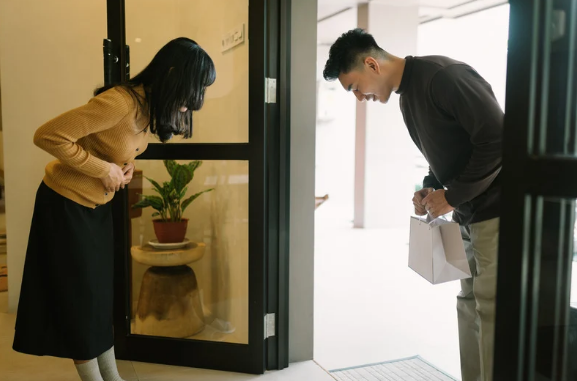
Omotenashi: What Makes Japanese Hospitality So Special
According to a study by Zendesk, 74% of people might switch brands if they’re unhappy with customer service. This shows how important it is to provide great service.
In Japan, there is a special way of welcoming people called omotenashi. Omotenashi means being helpful and paying close attention to what others need. This idea has changed how businesses treat their customers around the world.
Keep reading to learn more about omotenashi and how it can improve your customer service.
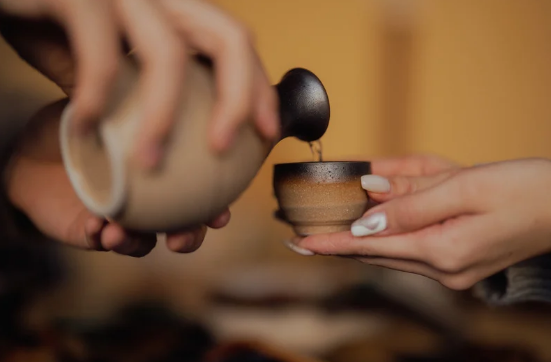
What is Omotenashi?
Omotenashi is a special Japanese way of being hospitable. It became well-known around the world in 2013 when Christel Takigawa used it to promote Japan for the 2020 Olympics. So, what does omotenashi really mean? It goes beyond just being polite or providing good customer service. Omotenashi means “wholehearted hospitality” or “selfless service.”
In Japan, omotenashi is everywhere. It’s seen in hotels, restaurants, and shops. For example, when you visit these places, the staff don’t just wait for you to ask for something. They try to guess what you might need and take care of it. They want to make sure you have a great experience without expecting anything in return.
This approach doesn’t just apply to businesses. It can also be used when you invite friends to your home or host a party. Omotenashi is about creating a warm and enjoyable experience for everyone.
So, next time you’re being a host, think about how you can make others feel special and cared for. It’s all about paying attention to the little things and going the extra mile to help others feel welcome.
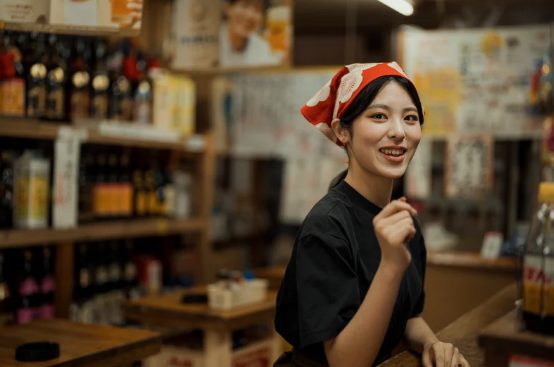
Omotenashi and Japanese Tea Ceremony
Omotenashi plays a big role in the Japanese tea ceremony. This is a special ritual where tea is carefully made and served to a small group of guests. In this ceremony, omotenashi shows up through the host’s attention to detail and their effort to make everything pleasant and relaxing for the guests.
For example, the host takes great care in preparing the tea and choosing the right utensils and cups. They also make sure the tea room feels warm and inviting. Everything is done with thoughtfulness and grace.
The term “omotenashi” comes from the Japanese phrase omote-ura nashi, which means “there is no front or back.” This idea means the host does everything openly in front of the guests. They clean the tools and make the tea without hiding anything. This shows they are genuinely serving their guests with honesty.
Sen no Rikyuu (1522-1591), a famous tea master in Japan, is known for the tea ceremony and omotenashi. He taught the principle of “ichigo ichie,” which means “once in a lifetime experience.” According to him, the tea ceremony should feel like a rare, special moment. The host should give their best effort in preparing and serving the tea. In return, guests should truly appreciate the tea, the utensils, and the host’s effort, treating the experience with sincerity.
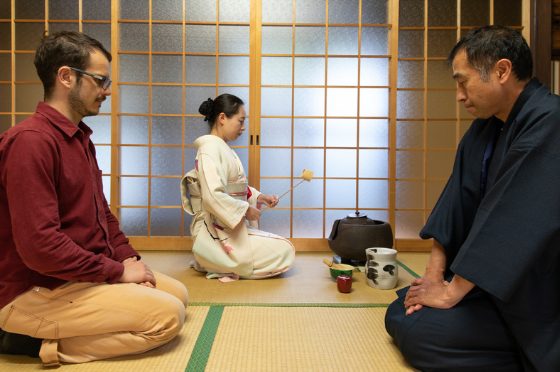
Everyday Examples of Omotenashi
Omotenashi is a key part of everyday life in Japan. It’s not just for special occasions or businesses. Even in simple places like a bookstore or a local shop, staff show omotenashi.
Here are some everyday examples:
- When you visit a café, the staff might offer you a small dish of nuts or a treat along with your drink. This adds a special touch to your experience.
- At a hotel, staff might place a small note in your room with recommendations for local attractions or restaurants. They do this to help you enjoy your stay even more.
- In a restaurant, the staff might bring you a small appetizer before your main meal, just to show their hospitality.
- When you buy something at a store, the cashier might ask if you need help carrying your bags to your car or to a nearby bus stop.
- If you’re shopping for clothes, store attendants might offer you a refreshing drink or a cool towel to help you relax during your fitting.
- In public places like parks, you might find staff who clean the restrooms frequently to keep them spotless and comfortable for everyone.
Omotenashi often happens in small, thoughtful ways. You might not always notice it, but it’s there. Japanese people quietly do these things to make sure you feel welcomed and cared for. This kind of service can be a pleasant surprise and show how much attention is given to your comfort.
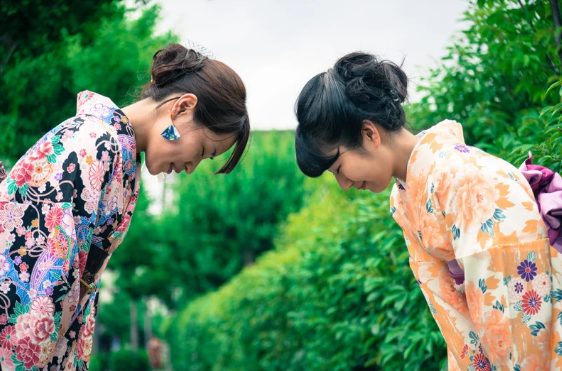
Experience Omotenashi Through the Imabari Towels
Imabari towels are famous for their softness and quality. They come from Imabari City in Japan and are known as some of the best towels you can get. Each towel is carefully made with attention to detail, showing the essence of omotenashi, or wholehearted hospitality.
Omotenashi is all about thinking ahead and caring for others with precision and warmth. Imabari towels reflect this spirit. They are crafted to deliver a top-notch experience, with their plush softness, great absorbency, and high standards of quality. This means when you use an Imabari towel, you feel well taken care of and special.
Choosing Imabari towels isn’t just about getting a great product. It’s also about enjoying a touch of Japanese hospitality. These towels are among the best Japanese towels, capturing the same thoughtful and meticulous care found in omotenashi. They bring comfort and a bit of luxury to your daily routine, showing how careful design and craftsmanship can enhance everyday moments.

Final Words
Omotenashi represents the heart of Japanese hospitality through its sincere and attentive care. This spirit of thoughtful service is perfectly embodied in Imabari towels, which offer both comfort and quality.
At Japarcana, we bring the essence of this Japanese hospitality to you with our premium Imabari towels. Check out our services to see how we can meet your Imabari towel needs and enhance your business with top-quality products.
